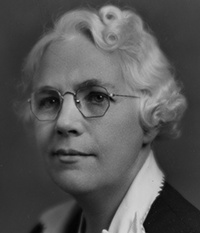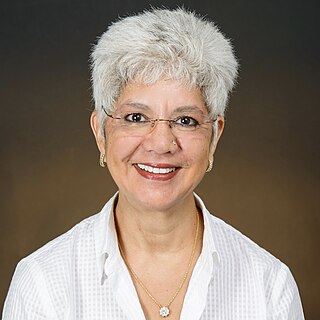Related Research Articles

The diathesis–stress model, also known as the vulnerability–stress model, is a psychological theory that attempts to explain a disorder, or its trajectory, as the result of an interaction between a predispositional vulnerability, the diathesis, and a stress caused by life experiences. The term diathesis derives from the Greek term (διάθεσις) for a predisposition, or sensibility. A diathesis can take the form of genetic, psychological, biological, or situational factors. A large range of differences exists among individuals' vulnerabilities to the development of a disorder.
Urie Bronfenbrenner was a Russian-born American psychologist who is most known for his ecological systems theory. His work with the United States government helped in the formation of the Head Start program in 1965. Bronfenbrenner's ability research was key in changing the perspective of developmental psychology by calling attention to the large number of environmental and societal influences on child development.
Psychological resilience is the ability to mentally or emotionally cope with a crisis or to return to pre-crisis status quickly. Resilience exists when the person uses "mental processes and behaviors in promoting personal assets and protecting self from the potential negative effects of stressors". In simpler terms, psychological resilience exists in people who develop psychological and behavioral capabilities that allow them to remain calm during crises/chaos and to move on from the incident without long-term negative consequences.
The College of Education and Human Development (CEHD) is one of seventeen colleges and professional schools at the University of Minnesota. CEHD departments are located on both the East Bank and St. Paul campuses.
Developmental psychopathology is the study of the development of psychological disorders with a life course perspective. Researchers who work from this perspective emphasize how psychopathology can be understood as normal development gone awry. Developmental psychopathology focuses on both typical and atypical child development in an effort to identify genetic, environmental, and parenting factors that may influence the longitudinal trajectory of psychological well being.

Florence Laura Goodenough was an American psychologist and professor at the University of Minnesota who studied child intelligence and various problems in the field of child development. She was president of the Society for Research in Child Development from 1946-1947. She is best known for published book The Measurement of Intelligence, where she introduced the Goodenough Draw-A-Man test to assess intelligence in young children through nonverbal measurement. She is noted for developing the Minnesota Preschool Scale. In 1931 she published two notable books titled Experimental Child Study and Anger in Young Children which analyzed the methods used in evaluating children. She wrote the Handbook of Child Psychology in 1933, becoming the first known psychologist to critique ratio I.Q.
Childhood trauma is often described as serious adverse childhood experiences (ACEs). Children may go through a range of experiences that classify as psychological trauma, these might include neglect, abandonment, sexual abuse, and physical abuse, witnessing abuse of a sibling or parent, or having a mentally ill parent. These events have profound psychological, physiological, and sociological impacts and can have negative, lasting effects on health and well-being such as unsocial behaviors, attention deficit hyperactivity disorder (ADHD), and sleep disturbances. Similarly, children with mothers who have experienced traumatic or stressful events during pregnancy can increase the child's risk of mental health disorders and other neurodevelopmental disorders. Kaiser Permanente and the Centers for Disease Control and Prevention's 1998 study on adverse childhood experiences determined that traumatic experiences during childhood are a root cause of many social, emotional, and cognitive impairments that lead to increased risk of unhealthy self-destructive behaviors, risk of violence or re-victimization, chronic health conditions, low life potential and premature mortality. As the number of adverse experiences increases, the risk of problems from childhood through adulthood also rises. Nearly 30 years of study following the initial study has confirmed this. Many states, health providers, and other groups now routinely screen parents and children for ACEs.
Michael Lewis is University Distinguished Professor of Pediatrics and Psychiatry, and director of the Institute for the Study of Child Development at Rutgers Robert Wood Johnson Medical School. He is also professor of psychology, education, and biomedical engineering and serves on the Executive Committee of the Cognitive Science Center at Rutgers. He is also founding director of the Rutgers Robert Wood Johnson Medical School Autism Center. He received his PhD in 1962 from the University of Pennsylvania in both clinical and experimental psychology.

Suniya S. Luthar is Professor Emerita at Teachers College-Columbia University, and Co-Founder & Chief Research Officer at Authentic Connections Co. She had previously served on the faculty at Yale University's Department of Psychiatry and the Yale Child Study Center and as Foundation Professor of Psychology at the Arizona State University.
An important part of the heritage of family resilience is the concept of individual psychological resilience which originates from work with children focusing on what helped them become resilient in the face of adversity. Individual resilience emerged primarily in the field of developmental psychopathology as scholars sought to identify the characteristics of children that allowed them to function "OK" after adversity. Individual resilience gradually moved into understanding the processes associated with overcoming adversity, then into prevention and intervention and now focuses on examining how factors at multiple levels of the system and using interdisciplinary approaches promote resilience. Resilience also has origins to the field of positive psychology. The term resilience gradually changed definitions and meanings, from a personality trait to a dynamic process of families, individuals, and communities.

Dante Cicchetti is a scientist specializing in the fields of developmental psychology and developmental psychopathology, particularly the conduct of multilevel research with high-risk and disenfranchised populations, including maltreated children and offspring of depressed parents. He currently holds a joint appointment in the University of Minnesota Medical School's psychiatry department, and in the Institute of Child Development. He is the McKnight Presidential Endowed Chair and the William Harris Endowed Chair.
Arnold J. Sameroff is an American developmental psychologist. He researches and writes about developmental theory and the factors that contribute to mental health and psychopathology, especially related to risk and resilience. Together with Michael Chandler he is known for developing the transactional model of development. He is one of the founders of the field of developmental psychopathology.
Margaret Beale Spencer is an American psychologist whose work centers on the effects of ethnicity, gender, and race on youth and adolescent development. She currently serves as the Marshall Field IV Professor of Urban Education in the Department of Comparative Human Development at the University of Chicago. Dr. Spencer's career spans more than 30 years and consists of over 115 published articles and chapters, stemming from work funded by over two-dozen foundations and federal agencies.

Kenneth Dodge is the William McDougall Distinguished Professor of Public Policy and Professor of Psychology and Neuroscience at Duke University. He is also the founding and past director of the Duke University Center for Child and Family Policy and founder of Family Connects International.
Early childhood trauma refers to various types of adversity and traumatic events experienced during the early years of a person's life. This is deemed the most critical developmental period in human life by psychologists. A critical period refers to a sensitive time during the early years of childhood in which children may be more vulnerable to be affected by environmental stimulation. These traumatic events can include serious sickness, natural disasters, family violence, sudden separation from a family member, being the victim of abuse, or suffering the loss of a loved one. Traumatic experiences in early childhood can result in severe consequences throughout adulthood, for instance developing post-traumatic stress disorder, depression, or anxiety. Negative childhood experiences can have a tremendous impact on future violence victimization and perpetration, and lifelong health and opportunity. However, not all children who are exposed to negative stimuli in early childhood will be affected severely in later life; some children come out unscathed after being faced with traumatic events, which is known as resilience. Many factors can account for the invulnerability displayed by certain children in response to adverse social conditions: gender, vulnerability, social support systems, and innate character traits. Much of the research in this area has referred to the Adverse Childhood Experiences Study (ACE) study.
Jude Anne Cassidy is Professor of Psychology and Distinguished Scholar-Teacher at the University of Maryland. Cassidy was awarded the American Psychological Association Boyd McCandless Young Scientist Award in 1991 for her early career contributions to Developmental Psychology. She is a Fellow of the American Psychological Association, Division 7 and the Association for Psychological Science.
Jelena Obradovic is a developmental psychologist who currently works as Associate Professor at the Stanford Graduate School of Education, where she is a member of the Steering Committee of the Center for Education Policy Analysis (CEPA). She also directs the Stanford Project on Adaptation and Resilience in Kids (SPARK).
Norman Garmezy was a professor of psychology who is known for his work in developmental psychopathology. After receiving his Ph.D. from the University of Iowa in 1950, Garmezy held appointments at Duke University (1950–1961) and the Institute of Child Development at the University of Minnesota (1961–1989). His early work was on the etiology of schizophrenia; however, he is best known for his later work on risk, resilience, stress, and coping in child development.
Nancy Eisenberg is a psychologist and professor at Arizona State University. She was the President of the Western Psychological Association in 2014-2015 and the Division 7 president of the American Psychological Association in 2010-2012. Her research focuses on areas of emotional and social development of children. She is also in charge of a research lab at Arizona State University where undergraduate researchers help in longitudinal studies of social and emotional development in children and young adolescents.

Eamon Joseph McCrory is a London-based scientist and clinical psychologist. He is Professor of Developmental Neuroscience and Psychopathology at University College London, where he Co-Directs the Developmental Risk and Resilience Unit. He is a Programme Director and member of the Executive team at the Anna Freud National Centre for Children and Families, Director of UKRI’s programme on Adolescent Mental Health and Wellbeing, and Co-Director of the UK Trauma Council.
References
- ↑ "Institute of Child Development – University of Minnesota". www.cehd.umn.edu.
- ↑ "Urie Bronfenbrenner Award for Lifetime Contribution to Developmental Psychology". APA. Retrieved 2017-11-28.
- ↑ Masten, Ann S. (2014). Ordinary magic : resilience in development. New York: Gilford. ISBN 978-1462523719. OCLC 936555625.
- 1 2 "Ann Masten: Children's natural resilience is nurtured through 'ordinary magic'". MinnPost. Retrieved 2017-10-16.
- ↑ Gray, Christina; Flanigan, Laura; Henley, Laura (2015-02-23). "Book Review: Ordinary magic: Resilience in development by Masten, A. S.MastenA. S. (2014). Ordinary magic: Resilience in development. New York, NY: Guilford Press". Canadian Journal of School Psychology. 30 (2): 163–165. doi:10.1177/0829573515574024. S2CID 146934313.
- ↑ Buhs, Eric S.; Rudasill, Kathleen Moritz (2016). "Resilience close up". Journal of Applied Developmental Psychology. 46: 84–85. doi:10.1016/j.appdev.2016.05.001.
- 1 2 Resilience in children. Lester, Barry M., Masten, Ann S., McEwen, Bruce S., New York Academy of Sciences. Boston, Mass.: Published by Blackwell Pub. on behalf of the New York Academy of Sciences. 2006. ISBN 1573316431. OCLC 76792050.CS1 maint: others (link)
- ↑ "Faculty Profile – Regents Professor – 2014 – Ann S. Masten". University of Minnesota Twin Cities. 15 January 2015. Retrieved 16 October 2017.
- ↑ "Masten honored with Irving B. Harris Endowed Professorship". University of Minnesota. 15 January 2013.
- ↑ "University of Minnesota: Scholars Walk". University of Minnesota: Scholars Walk. Archived from the original on 2017-05-12. Retrieved 2017-12-03.
- ↑ "Forum on Investing in Young Children Globally (iYCG) : Health and Medicine Division". nationalacademies.org. Retrieved 2017-11-28.
- ↑ "Program – Opening Lecture and Keynote Addresses | ICP2016". International Congress of Psychology (in Japanese).
- ↑ "10th Annual Psychology Day at the UN Theme". Psychology Day at the UN.
- ↑ "Masten offers MOOC on resilience in children exposed to trauma". 2016-12-05. Retrieved 2017-12-03.
- ↑ Masten, Ann S.; Best, Karin M.; Garmezy, Norman (1990). "Resilience and development: Contributions from the study of children who overcome adversity". Development and Psychopathology. 2 (4): 425–444. doi:10.1017/S0954579400005812. ISSN 1469-2198.
- ↑ Garmezy, Norman; Masten, Ann S. (1986). "Stress, competence, and resilience: Common frontiers for therapist and psychopathologist". Behavior Therapy. 17 (5): 500–521. doi:10.1016/s0005-7894(86)80091-0.
- ↑ "Project Competence Research on Risk and Resilience – Institute of Child Development – U of MN". www.cehd.umn.edu. Retrieved 2017-12-03.
- ↑ "Simon Says: Minnesota research focuses on helping homeless kids learn". Twin Cities Daily Planet. Retrieved 2017-11-14.[ permanent dead link ]
- ↑ "National Resilience Resource Research". www.nationalresilienceresource.com.
- ↑ Masten, Ann S.; Coatsworth, J. Douglas (1998). "The development of competence in favorable and unfavorable environments: Lessons from research on successful children". American Psychologist. 53 (2): 205–220. doi:10.1037/0003-066x.53.2.205. PMID 9491748.
- ↑ "Resilience Research for Prevention Programs" (PDF).
- ↑ Masten, A. S.; Hubbard, J. J.; Gest, S. D.; Tellegen, A.; Garmezy, N.; Ramirez, M. (1999). "Competence in the context of adversity: pathways to resilience and maladaptation from childhood to late adolescence". Development and Psychopathology. 11 (1): 143–169. doi:10.1017/S0954579499001996. ISSN 0954-5794. PMID 10208360.
- ↑ Masten, Ann S.; Best, Karin M.; Garmezy, Norman (1990). "Resilience and development: Contributions from the study of children who overcome adversity". Development and Psychopathology. 2 (4): 425–444. doi:10.1017/S0954579400005812. ISSN 1469-2198.